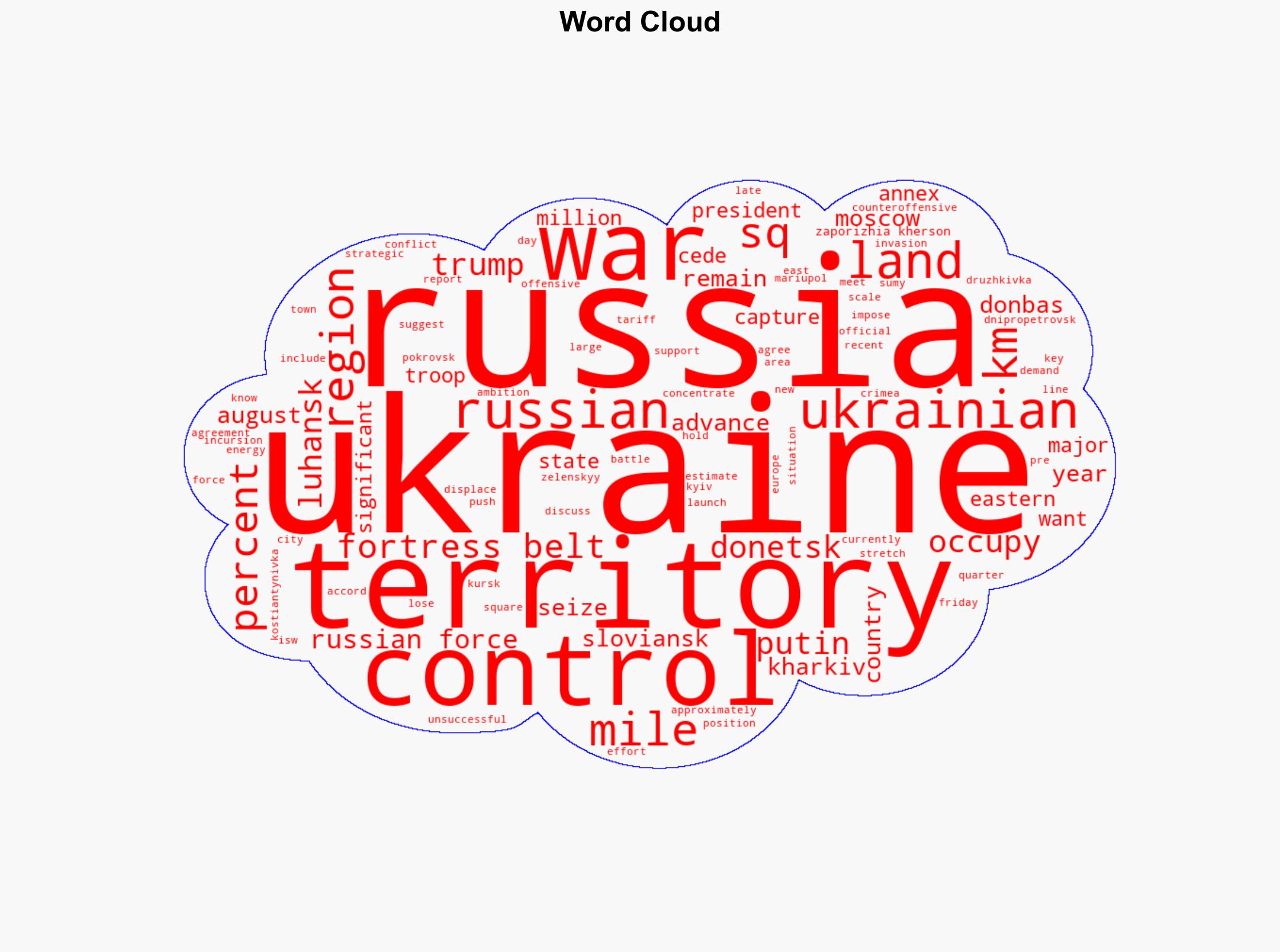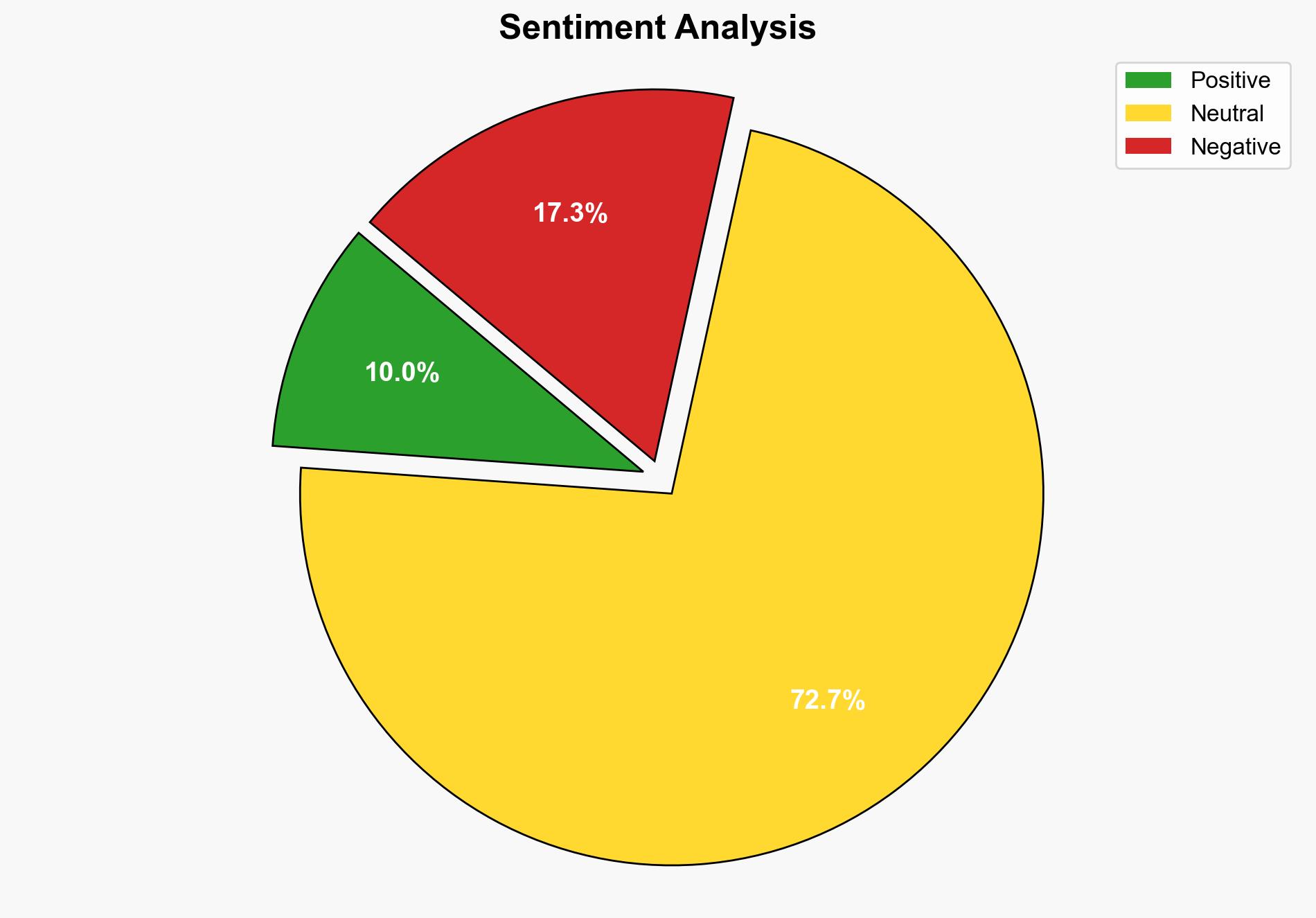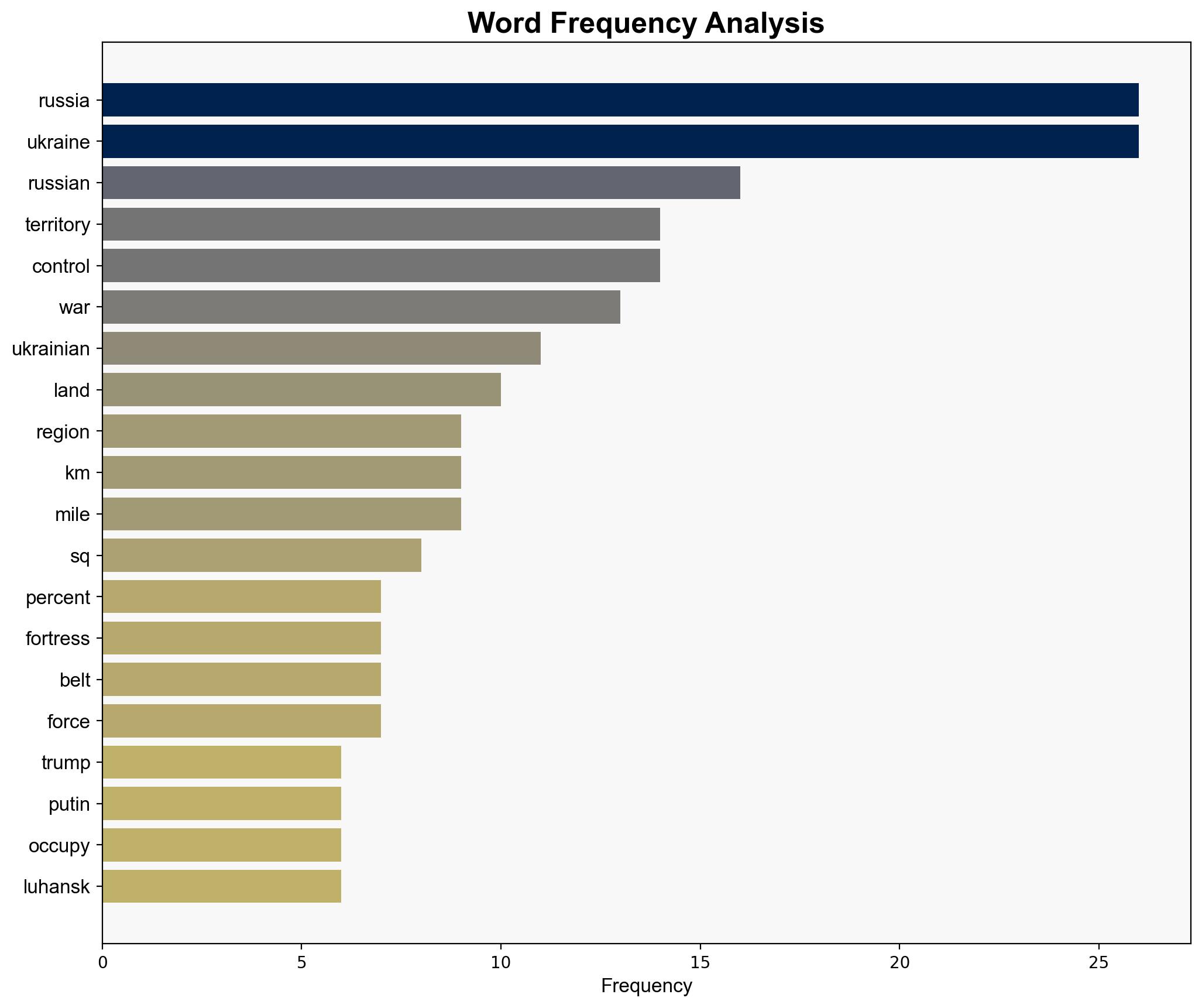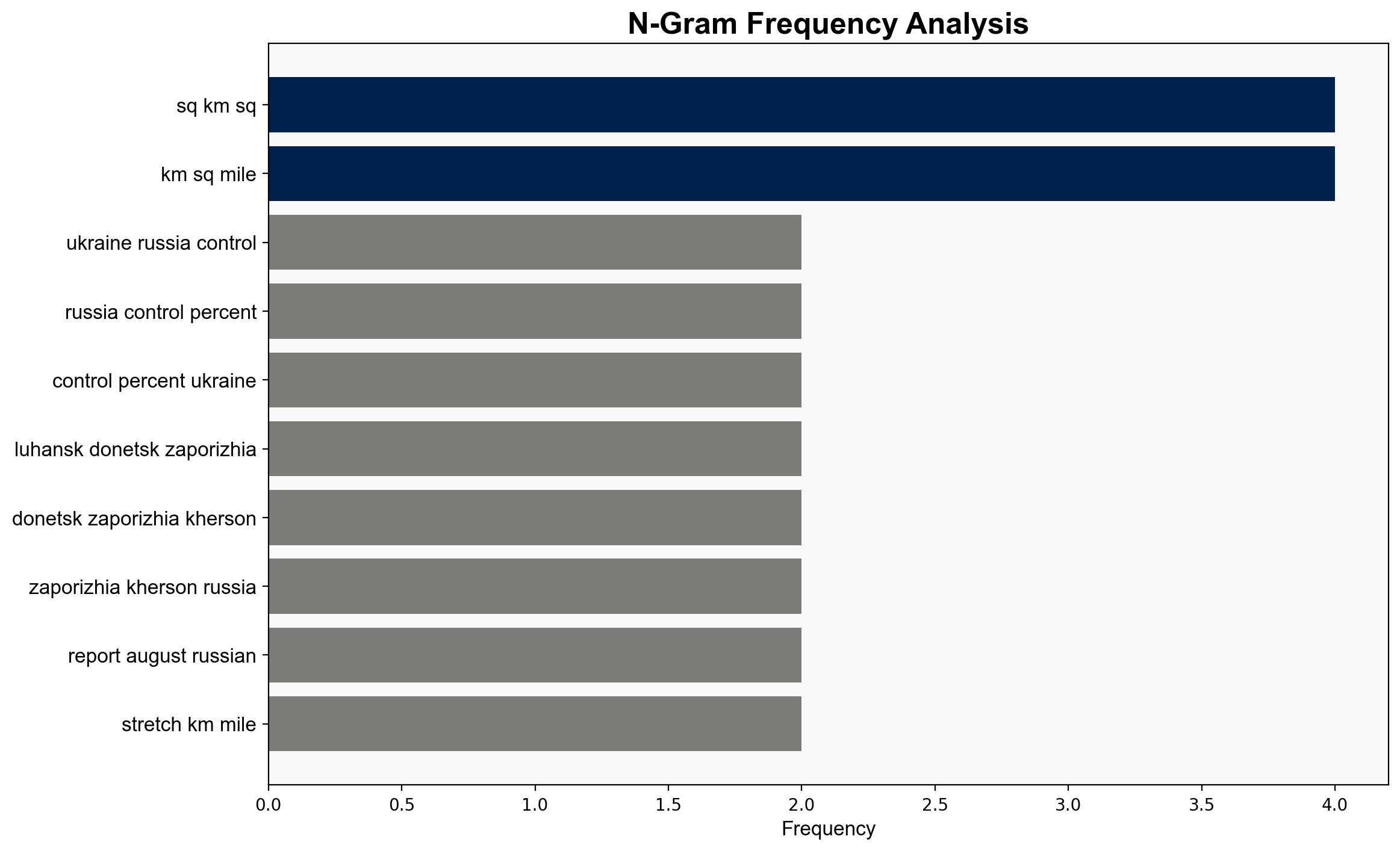Trump-Putin meeting How much territory does Russia control in Ukraine – Al Jazeera English
Published on: 2025-08-14
Intelligence Report: Trump-Putin meeting How much territory does Russia control in Ukraine – Al Jazeera English
1. BLUF (Bottom Line Up Front)
The most supported hypothesis is that Russia aims to solidify its control over occupied Ukrainian territories through diplomatic negotiations, potentially involving land swaps, while maintaining pressure through military presence. Confidence level: Moderate. Recommended action: Increase diplomatic engagement with allies to counterbalance Russian territorial ambitions and reinforce support for Ukraine’s sovereignty.
2. Competing Hypotheses
1. **Hypothesis A**: Russia seeks to negotiate a formal agreement to maintain control over currently occupied territories in Ukraine, using diplomatic channels and economic leverage to achieve this aim.
2. **Hypothesis B**: Russia’s primary objective is to continue military operations to expand its territorial control in Ukraine, with diplomatic negotiations serving as a facade to delay international sanctions and buy time for further military gains.
Using the Analysis of Competing Hypotheses (ACH) 2.0, Hypothesis A is better supported by the current intelligence, which highlights Russia’s interest in diplomatic negotiations and the potential for land swaps.
3. Key Assumptions and Red Flags
– **Assumptions**: It is assumed that Russia’s diplomatic overtures are genuine and not merely a tactic to delay sanctions. It is also assumed that Ukraine is unwilling to cede any territory, despite potential diplomatic pressure.
– **Red Flags**: The possibility of deception in Russia’s diplomatic intentions. Inconsistent data regarding the extent of Russian control and the effectiveness of Ukrainian counteroffensives.
4. Implications and Strategic Risks
– **Geopolitical**: Successful Russian territorial consolidation could embolden further aggression in the region, destabilizing Eastern Europe.
– **Economic**: Prolonged conflict and sanctions could impact global energy markets, particularly if Russia leverages its energy exports.
– **Cyber**: Increased cyber threats targeting Ukrainian infrastructure and Western allies supporting Ukraine.
– **Psychological**: Potential erosion of Ukrainian morale and international support if perceived concessions are made.
5. Recommendations and Outlook
- Enhance intelligence-sharing with allies to monitor Russian military movements and diplomatic engagements.
- Strengthen economic sanctions and explore alternative energy sources to reduce dependency on Russian exports.
- Scenario-based projections:
- Best: Diplomatic resolution with Russia withdrawing from occupied territories.
- Worst: Escalation of military conflict with expanded Russian territorial control.
- Most Likely: Prolonged stalemate with intermittent negotiations and military skirmishes.
6. Key Individuals and Entities
– Vladimir Putin
– Donald Trump
– Volodymyr Zelenskyy
7. Thematic Tags
national security threats, geopolitical strategy, regional focus, diplomatic negotiations





